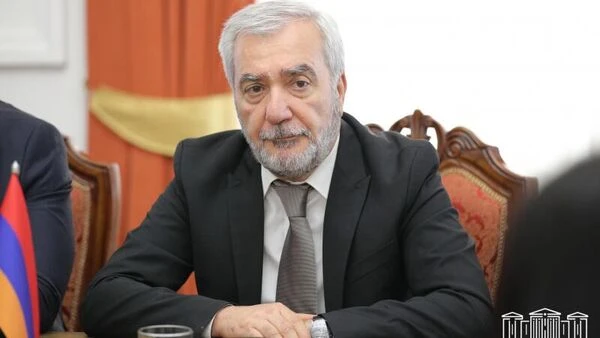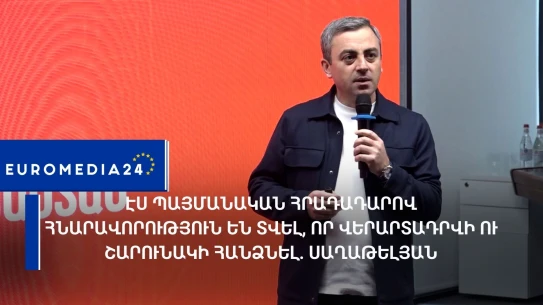The discussions that took place on the day of the hearings of the power structures in the National Assembly, which turned into some sharp questions, of course, became another show in the Armenian media and pseudo-analytical domain, to which everyone gave a political assessment according to their taste. Andranik Kocharyan, Chairman of the Standing Committee on Defense and Security Affairs of the National Assembly, mentioned this during the plenary sessions of the National Assembly.
"But there doesn't seem to be any healthy, real analysis. And what happened in reality was a vivid manifestation of the conflicts of passing and future morals, parliamentarism, the recovery of the management and personnel system, and the conflicts of "bullying".
In fact, it is no secret that there have always been certain problems in our country from a value point of view, especially in the power structures, where the power forces, with the values inherited from the USSR, as a result of the difficult period of the 1990s, a certain independence as a result of the first Artsakh war, being a state within a state, or at least intact bastions they lived by the principles of being.
2018 After the revolution, we tried to lay a foundation for democracy, and constitutionally fixed parliamentarianism tried to fix its place and role. It is clear that in all spheres there are resisters who prefer the morals of Bonapartism, who do not leave their "comfort zones". The problem is not specific individuals. many young people with shoulder straps often feel special and unique when they have a flying career. The problem is not specifically related to Argishti Kyaramyan, the problem is not related to Aghazaryan, or to personal debates and personal accounts. The problem is that RA has chosen the path of democracy, the path of parliamentarism, which, however, is very thorny. Among the highest political officials in RA, only the RA Prime Minister is the only one who always comes to the parliament, participates in the hearings, hears often difficult questions from the audience and journalists, and gives answers. Sometimes there are stonings and harsh criticisms, but that is what democracy is all about. This is parliamentarism, real democracy, and all officials should be ready to work in this environment. The Parliament is the pillar of Armenia's statehood, where it is not a shame to come. Many of us avoid parliamentary hearings. Sending deputies and being unavailable does not make them a strong leader. Allen Dulles, Edgar Hoover and Robert McNamara reported to the American Congress.
RA Minister of Defense and Prime Minister Vazgen Sargsyan gave a report in the Parliament of the Third Republic of RA. Parliament is a high level of political control, an institution of political balance. Regardless of everything, parliamentary hearings are successful, regardless of everything, they serve their purpose, because transparency is formed as a result of these hearings, the people see and hear the real problems and the ways to solve them.
The head of any department or the person in charge of the field must give a report to the parliament, society, journalists, etc. about the events happening in his field, especially the problems. It seems that we have formed quite good traditions: we hold parliamentary hearings before the appointments of various officials, judges, and other state officials. There was even a case that the General Secretary of the RA Armed Forces had to be appointed only after the parliamentary hearings. These are traditions that have never existed in RA and these are the ones that establish a real, democratic state through the classical institutions of parliamentarism. In this case, any government official should understand that criticizing is very normal. You should be ready to listen to retorts, sharp criticisms. Elected political authorities are often ridiculed. The Republic of Armenia has gone through a difficult path in this direction in the last five or six years. Needless to say, there are achievements that we have no right to lose, but it is necessary to deepen these traditions and expand the list of officials who, before being appointed, must come to the RA National Assembly and present their programs in the relevant committees, listen to sharp questions and give appropriate answers, and be appointed to those positions. accepting the Parliament as a partner and a school. Countries with a strong tradition of parliamentarism appoint not only heads of departments but also many other key officials in this way. This is how responsibility and political maturity are formed.
Of course, parliamentarians should also be in their place and be ready to work, speak, demand, develop laws, not be those who always agree with the executive, or sit in the hot seat, who have not even given a single speech in a year, have not even participated in the discussion of a single law. outside the plenary sessions.
The strengthening of RA statehood is the full establishment of democracy, rule of law and transparency," he said.


